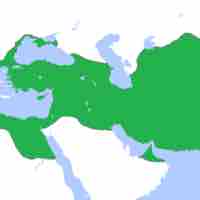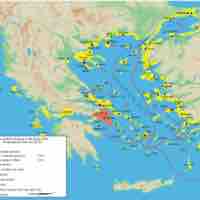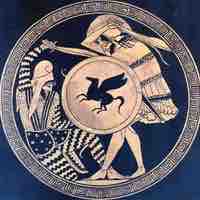Chapter 7
Ancient Greece and the Hellenistic World
By Boundless
The Greek Dark Ages were ushered in by a period of violence, and characterized by the disruption of Greek cultural progress.
The Archaic Period saw the increasing urbanization of Greek communities, and the development of the concept of the polis.
Classical Greece rose after the fall of the Athenian tyrants and the institution of Cleisthenes' democratic reforms, and lasted throughout the 5th and 4th centuries BCE.
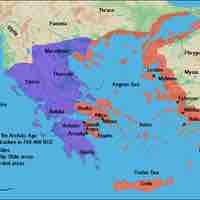
Sparta, known for its militaristic culture and unequaled women's rights, was a dominant military power in classical Greece.
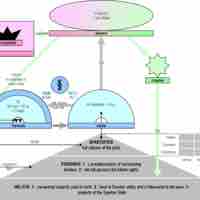
Although Spartan society was highly regimented, militarily and socially, enslaved classes and women were afforded greater privileges relative to the populations of other Greek city-states.
The three most famous Classical Greek philosophers are Socrates, Plato, and Aristotle.
Homer, one of the greatest Greek poets, significantly influenced classical Greek historians as their field turned increasingly towards scientific evidence-gathering and analysis of cause and effect.
Classical Greek theater, whether tragic or comic, has had great influence on modern literature and drama.
Classical Greek architecture can be divided into three separate styles: the Doric Order, the Ionic Order, and the Corinthian Order.
The Hellenistic Period witnessed significant scientific advancements, due to the mixing of Greek and Asian culture and royal patronage.
The Peloponnesian War provided a dramatic end to the 5th century BCE, shattering religious and cultural taboos, devastating vast swathes of countryside, and destroying whole cities.
Following the Peloponnesian War, Athens underwent a period of harsh oligarchic governance and Sparta enjoyed a brief hegemonic period.
Philip II’s conquests during the Third Sacred War cemented his power, as well as the influence of Macedon, throughout the Hellenic world.
In a little over 30 years, Alexander the Great created one of the largest empires in the ancient world, using his military and tactical genius.
Alexander the Great's legacy was the dissemination of Greek culture throughout Asia.
Four stable power blocks emerged following the death of Alexander the Great: the Ptolemaic Kingdom of Egypt, the Seleucid Empire, the Attalid Dynasty of the Kingdom of Pergamon, and Macedon.
